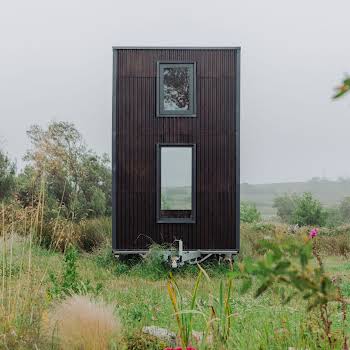
Betwixt And Tween – How You Can Help Your Teen Navigate Christmas Gracefully
By Laura George
20th Dec 2017
20th Dec 2017
You’re not a kid, and you’re not an adult – and at Christmas that can make for tricky times. Psychotherapist and teens specialist Shirley Brennan talks to Jessie Collins about how to manage those burgeoning adults in your life into a merry new year.
Many of us can probably remember the feeling when Christmas lost that special kind of magic, that counting-down-the-sleeps, going-to-burst-if-it-doesn’t-come-soon, Santa-is-real kind of magic, which, along with 178 selection boxes, kept you on a high for most of the month of December.
Then, like a Grinch in the night, suddenly it’s been stolen, and you wake up realising Santa is your parents, and it all seems a bit childish to be getting gooey over having to go to your Nan’s for another year. That magic feeling is still almost close enough to touch, but now just out of reach. And there is little to fill its place. You are years away from jumping on the good ship Prosecco or even the odd egg nog, and instead are festooned with silly jumpers and novelty pyjamas.
“It is a much more subconscious and ambiguous loss as one moves towards adulthood,” says Shirley Brennan of Bray Counselling and Therapy Centre in Wicklow who focuses specifically on working with teens. “The loss of the magic of Christmas is more a feeling then something spoken, but it is the ambiguity of the loss of childhood and a childhood Christmas. And there is very little time given to reflect on the change from even a year or two years ago.” “How do we hold all these mixed and heightened emotions as a parent,” asks Brennan, “how do you not take it personally and react to the emotions?”
The first thing is to pause, says Brennan, and look at the bigger picture. Emotions can run high, and often teens don’t even know why they are feeling what they are feeling. “Don’t assume they know what’s going on themselves. The reality is they feel it but they don’t know what it is, because they have a developing body and mind. And we are looking through our adult glasses going what the hell is wrong with you? I gave you €50 yesterday, and this is the thanks I get for it!”
Choose your words and actions carefully. “Don’t connect the €50 you gave them to something that is happening now. Twenty four hours is a lifetime ago in their developing brain, but the parent is the leader in the family, we are the influencer, and how we respond to our own angst and how we model that is hopefully the way we would like them to develop their coping skills.” Instead, she suggests, use open language and phrases, inviting discussion. Saying things like “‘I hear what you are saying, just give me a minute to think about that,’” help to keep the channels open.
For those teens who experience social anxiety, Christmas can bring added difficulties. “The whole notion that there are expectations to socialise,” advises Brennan, “and all the feelings of the isolation of not doing that if they are not able – it in turn affects their mood and behaviour.” For those dealing with eating disorders, this can be also be a really challenging time. “The stress increases because of the expectation to eat, and there is an increased presence of other family members, that can really contribute to increased levels of stress and can lead to really challenging behaviours and and the interactional conflicts with parents.”
Though families may have professional supports in place if there is something more serious going on, Brennan advises just taking time, and going easy on each other. “Just be kind, press the pause button, don’t tackle it all. Take one point and try and tackle that. It’s intense time on both sides, check in, express concern in a caring inviting way.”
Having guests around, or people staying with you can sometimes up the ante too, but use this interruption as an opportunity to break from conflict, and then choose your moment wisely. “You may not resolve it how you’d like or there isn’t time, but sometimes that’s a good thing because it forces you to pause and come back to it later, but do not ignore it. Choose a response and not a reaction because really that is what you are doing as a parent, inviting yourself, as parent, to wonder what is going on here for them, and use it as an opportunity, to address it when things are calmer, when there are less people around and very often the best time to do that with teenagers is when you are in the car going somewhere together. Not necessarily face to face but while you are walking the dog or doing tasks.”
Seeking support yourself is a way of sharing the load, and inviting other positive influences in. “There might be a favourite uncle or aunt home for Christmas and he might be an important influential person to check in with the teenager, people who are genuinely interested in their survival in their world and their wellbeing. Utilise other people that are available to you that might be an extra support.”
Overall, Brennan’s advice is to always leave to option open for them to come to you. “Invite, don’t exclude. The fact that you have called them ten times from their room over the last month and they don’t come down for dinner doesn’t mean on this occasion they are not going to come down. Keep the invitation open and always ask. You have to be the bigger person, even if there has been a row, always invite them in.”























